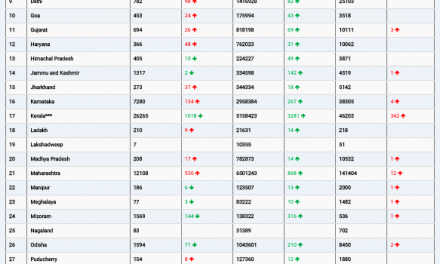A new study published in the Journal of the American College of Cardiology reveals that maintaining systolic blood pressure below 130 significantly reduces the risk of heart-related death in individuals aged 80 and older. The research indicates a 26% decrease in heart-related mortality for seniors who kept their systolic blood pressure within this target range.
“We found that people with blood pressure below 130 have a lower risk of dying from heart disease and stroke,” stated senior researcher Yuan Lu, an assistant professor of cardiology at Yale School of Medicine, in an accompanying podcast. “Blood pressure above 145 was linked to a higher risk of heart-related death.”
This finding aligns with the 2017 updated guidelines from leading American heart health organizations, which lowered the threshold for diagnosing high blood pressure to 130 systolic for all adults. Previously, the threshold for seniors was 150.
The study addressed the existing gap in research regarding optimal blood pressure targets for the elderly. “The evidence regarding optimal blood pressure targets for adults aged greater than 80 years remains limited and inconsistent across various guidelines,” the researchers noted in their paper. This is largely due to the exclusion of older participants or insufficient follow-up in previous major blood pressure studies.
The researchers analyzed medical records of nearly 1,600 individuals aged 80 and older who were prescribed blood pressure medications between 1988 and 2014, tracking their mortality through 2019. Heart disease accounted for nearly half (46%) of the deaths in this group.
The results demonstrated that keeping systolic blood pressure below 130 significantly reduced the risk of cardiovascular death. “Our study suggests that treating high blood pressure aggressively in adults 80 and above may be beneficial, as a systolic blood pressure below 130 is associated with lower cardiovascular risk,” Lu explained.
However, Lu emphasized the importance of personalized treatment plans, particularly for frail individuals and those with multiple health conditions. “However, we must know that treatment decisions should still be personalized for frail individuals and those with multiple health conditions,” she concluded. “A slightly higher blood pressure target may be safer.”
More information on blood pressure guidelines is available from Harvard Medical School. The study, “Systolic Blood Pressure and Cardiovascular Mortality in U.S. Adults Aged 80+ Taking Antihypertensive Medications,” by Huanhuan Yang et al., was published in the Journal of the American College of Cardiology. (DOI: 10.1016/j.jacc.2025.01.033)
Disclaimer: This news article is based on the provided research and should not be considered medical advice. Individuals with concerns about their blood pressure should consult with their healthcare provider for personalized guidance and treatment. The findings of this study may not apply to every individual, and treatment decisions should be made in consultation with a qualified medical professional.












